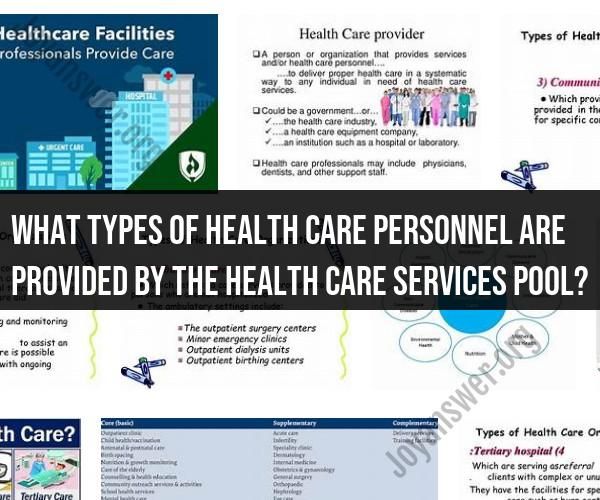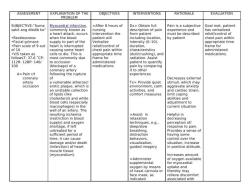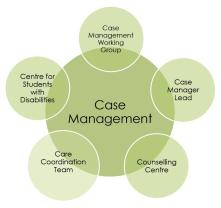What types of health care personnel are provided by the health care services pool?
Overview of Health Care Personnel in the Services Pool
The services pool in a healthcare organization consists of a diverse group of healthcare personnel who play crucial roles in providing patient care and maintaining the smooth functioning of the facility. Some key personnel in the services pool include:
1. Registered Nurses (RNs):
RNs are trained healthcare professionals who provide direct patient care, administer medications, monitor patients' conditions, and collaborate with doctors to create treatment plans.
2. Licensed Practical Nurses (LPNs) or Licensed Vocational Nurses (LVNs):
LPNs/LVNs assist RNs in patient care, perform basic medical tasks, and monitor patients' vital signs. They also provide comfort and support to patients.
3. Certified Nursing Assistants (CNAs) or Patient Care Assistants (PCAs):
CNAs/PCAs provide hands-on care to patients, including bathing, dressing, feeding, and assisting with mobility. They play a vital role in patient comfort and well-being.
4. Medical Assistants:
Medical assistants support healthcare professionals by performing administrative and clinical tasks. They may take patient histories, prepare exam rooms, and assist with minor medical procedures.
5. Radiologic Technologists:
Radiologic technologists operate imaging equipment, such as X-ray and MRI machines, to assist in diagnosing and treating patients' medical conditions.
6. Respiratory Therapists:
Respiratory therapists evaluate and treat patients with breathing disorders. They administer respiratory treatments, monitor lung function, and provide education on managing respiratory conditions.
7. Physical and Occupational Therapists:
Physical and occupational therapists help patients recover from injuries or surgeries, improve mobility, and regain independence in daily activities.
8. Nutritionists and Dietitians:
Nutritionists and dietitians provide dietary guidance to patients, creating meal plans that support health conditions and promote well-being.
These are just a few examples of the various healthcare personnel found in the services pool. Each member of the team contributes to delivering high-quality patient care and ensuring the efficient operation of the healthcare facility.













